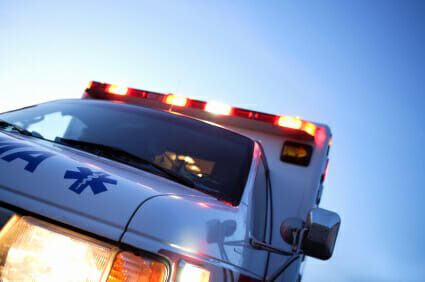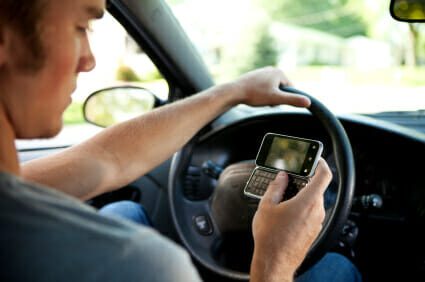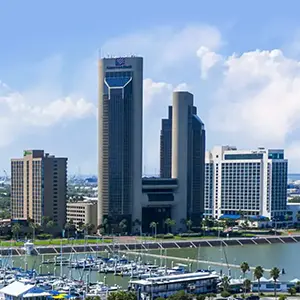How Long After a Car Accident Can You Go to the Hospital if You Didn’t Call an Ambulance?

How long after a car accident can you go to the hospital? Not taking an ambulance from the scene of an accident does not prevent you from going to the hospital at a later time. If you begin to feel pain or discomfort after a collision, it is always best to get a diagnosis and treatment from a healthcare provider.
What Kinds of Injuries Are Common in Auto Accidents?
An estimated 2.44 million people were injured in motor vehicle accidents in 2015 – that averages to an astonishing 6,693 people each day. Injuries from a car crash can range from minor to catastrophic and can result in long-term effects on your physical and mental health. Additionally, the extent of these injuries may not be immediately evident. That is why it is crucial to visit a healthcare provider after an accident.
- Soft tissue injuries
- Whiplash
- Strained ligaments
- Back muscle sprains
- Scrapes and Cuts
- Traumatic brain injuries
- Chest injuries
- Bruising
- Contusions
- Broken ribs
- Internal injuries
- Broken bones
- Jaw injuries
- Loss of teeth
- Neck injuries
- Crushed larynx
- Crushed trachea
- Broken neck
- Pelvic injuries
- Lacerations
- Penetration injuries
What Should I Do If I’ve Been Involved in a Traffic Accident?
There are important steps you can take following an automobile accident that can help ensure the safety of you and your loved ones and protect your legal rights as an accident victim.
Steps to take after a car crash include:
- Stop immediately after the crash
- Even if a collision is minor, it is important to remain at the scene. Never flee from the scene of an accident as it is illegal and will only make matters worse.
- Assess the situation
- Car crashes can be disorientating. It is important that you take a moment to assess the situation. Check yourself and your passengers for injuries. Determine if it is safe to exit your vehicle and see what routes are available for a safe exit. Refrain from moving anyone who has suffered a back, neck, or spinal injury if at all possible.
- Make the accident visible
- Accidents are an unexpected disruption to traffic flow, and numerous accidents occur by drivers crashing into the site of a previous collision. You can prevent further accidents and hazards by turning on your vehicle’s warning lights, setting out reflectors, or activating road flares. It is also smart to keep a flashlight in your car – should an accident occur at night, you can carry the flashlight after exiting your vehicle to make yourself more visible.
- Notify the police
- If there is an emergency, contact 911. Otherwise, contact your local police department – even if there are no serious injuries. A detailed police report will go a long way when you file a claim with your insurance company. If there is an injury, be sure that paramedics are called to the scene as well. If there is any confusion whether or not an injury has occurred, err on the side of caution and have an ambulance respond to the scene.
- Record the facts
- Speak with the responding officers and be as accurate and forth coming as possible. Do not feel like you have to have all the answers. Do not speculate at the facts of the accident or whether you sustained an injury. If you are unsure how the accident occurred or unsure if you have sustained an injury, it is okay to respond with “I don’t know.”
- Take pictures
- A major benefit that has come with the popularity of cell phones is that the vast majority of people have a camera with them at all times. Take photos of your vehicle, any visible damage, the scene of the accident, and any injuries that you or a passenger may have suffered.
- Gather and exchange information
- More often than not, the responding officer will obtain insurance information from all drivers involved. If this does not occur, gather the name, phone number, and addresses of all persons involved in the accident, including passengers and witnesses. You should also obtain the insurance information of all driver involved by requesting to see each vehicle’s insurance card.
- Seek medical attention
- Pain and injuries may not be immediately evident following an accident. In fact, much of the pain will occur a day or two following the crash. Again, if there is any uncertainty whether you have sustained an injury, err on the side of caution. There is no harm in getting a check-up at your local emergency room or in making an appointment with your primary physician. Let them have the final say, even if only for peace of mind.
- Report the accident to your insurance
- Contact your insurance company as soon as you can following a crash – most policies actually require immediate reporting of an accident. This will also let you discuss your medical benefits as well as get your claim under way. As your claim is process, keep a detailed log of any medical bills, updates, changes in health, and crash related expenses such as rentals.
- Contact an experienced car crash attorney
- The role of your attorney is not simply to file a lawsuit. An attorney is responsible for protecting your rights and for making sure insurance companies are acting in your best interest. A good car accident attorney will help you obtain and protect valuable evidence, provide legal advice before you provide a statement to the insurers, ensure you receive the medical attention you need, and press insurers to process your claim in a timely and fair manner. Should your rights be infringed upon, the best attorneys are those who are willing and ready to go to trial. If you’re looking to enlist the help of an expert attorney, contact Thomas J. Henry Law today. For more information, view our Guide to Texas Car Accidents Claims.
Blog











